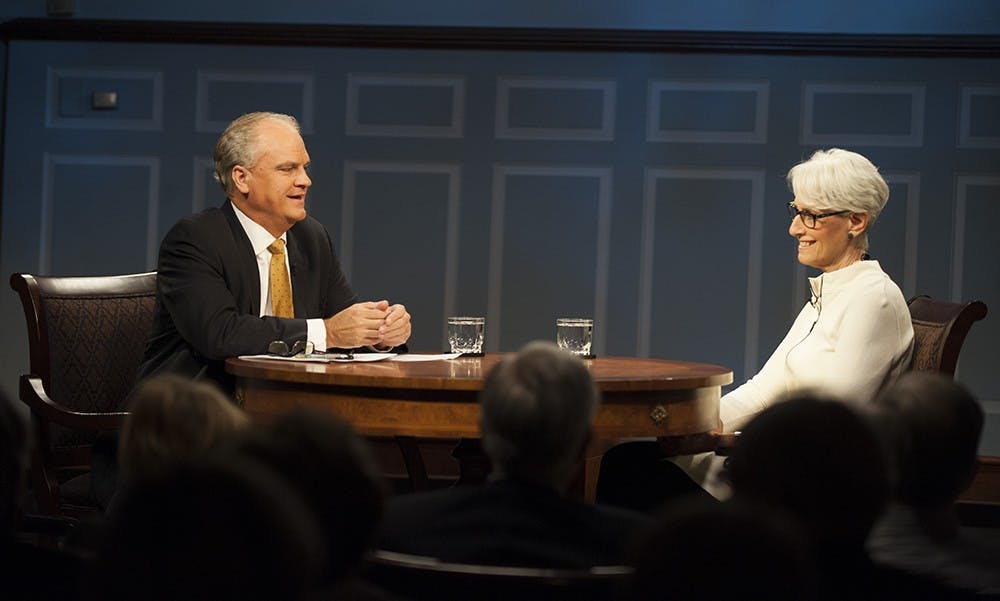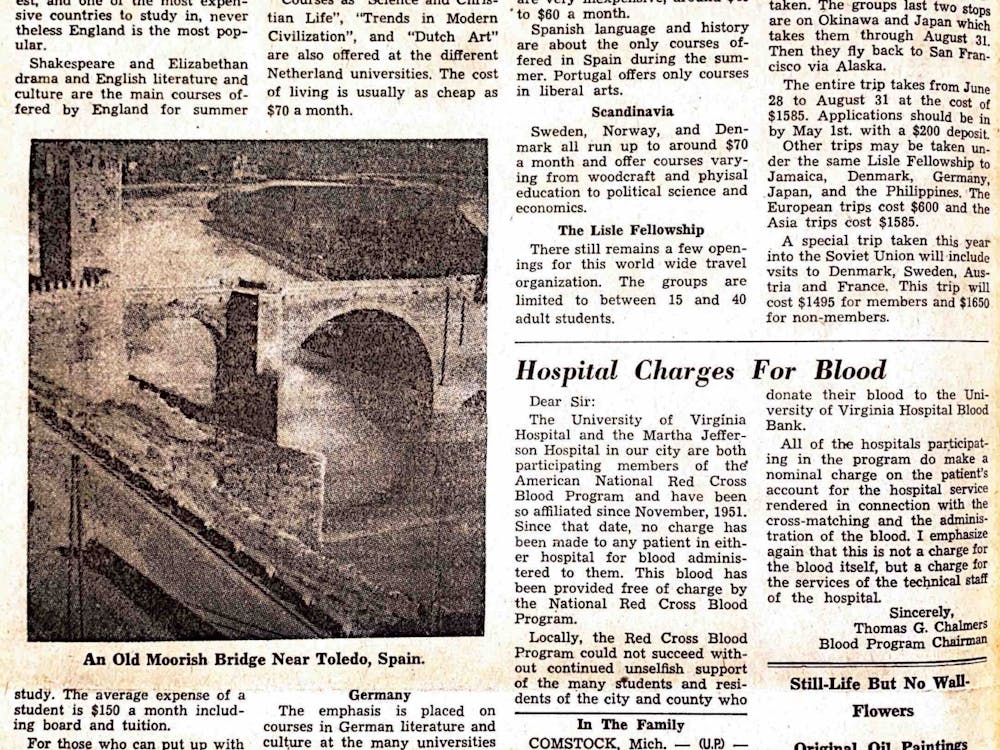Wendy Sherman, U.S. undersecretary of state for political affairs, spoke Friday at the Miller Center about the Iran nuclear agreement.
The talk was part of the PBS program “American Forum” — which the Miller Center often hosts — and was led by Douglas Blackmon. Both Blackmon and audience members asked Sherman about the details of the deal, criticisms it has received and its overall significance.
The Iran deal, or the “Joint Comprehensive Plan of Action,” does not rely on trust or on a foundation of previous diplomacy, Sherman said, but rather relies upon consistent American surveillance.
“This agreement isn’t based on trust,” Sherman said. “It’s based on intrusive monitoring.”
Sherman discussed some of the penalties Iran would encounter should it violate any part of the deal, specifically the “snapback” economic sanctions they have already faced.
“These agreements are legally binding,” she said. “All those ‘snapbacks’ can fall back into place.”
Though publicly contentious, the lack of ‘anytime/anywhere’ checks by the International Atomic Energy Agency is natural, Sherman said, given that the IAEA always gives at least 24 hour notice of facility inspection.
“That doesn’t exist anywhere—the IAEA must give a 24 hour notice before inspecting a facility,” Sherman said.
Should the agreement be enacted and Iran declines to allow an inspection, Iran and IAEA would enter into a two week debate. If they do not reach a decision, the Joint Commission — a U.S.-based non-profit accreditation organization — will determine whether the IAEA should gain access.
If the inspection were granted, Iran would have three days to prepare for the inspection. Sherman said the total amount of time this process would take is not nearly enough time to hide traces of enriched uranium.
Asked by an audience member what will happen if Congress doesn’t approve of the agreement, Sherman said she did not know what would follow.
“I don’t know what [would] happen, but I’m confident that the agreement will be implemented,” she said.





